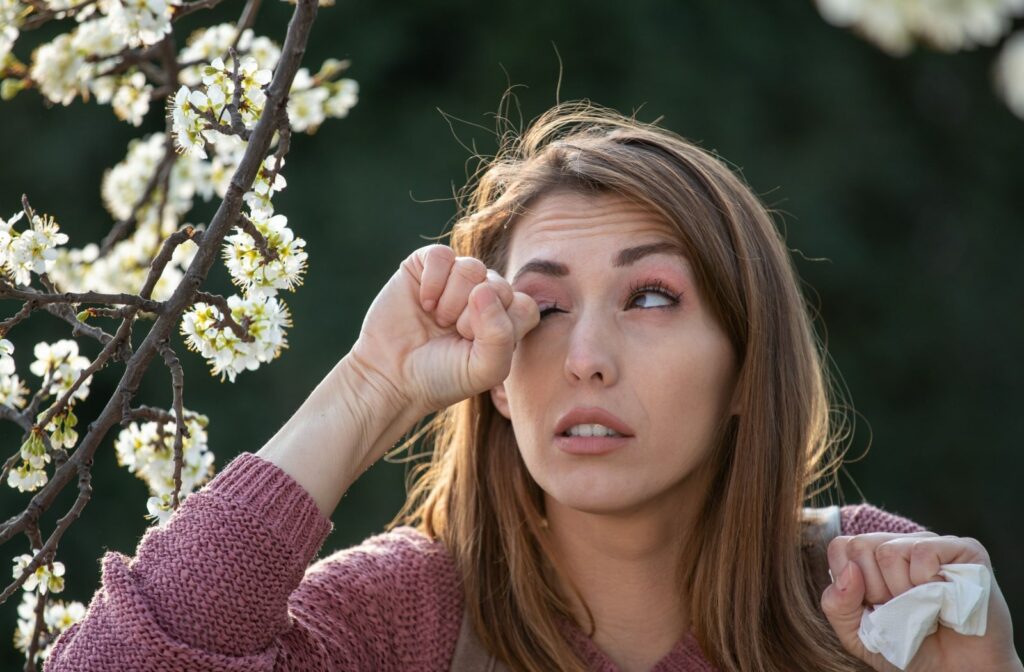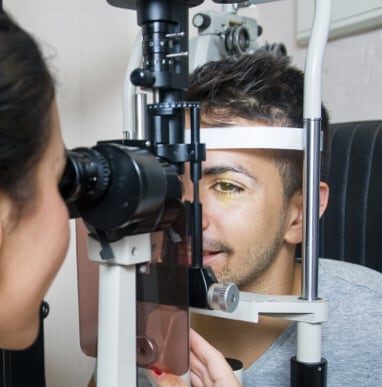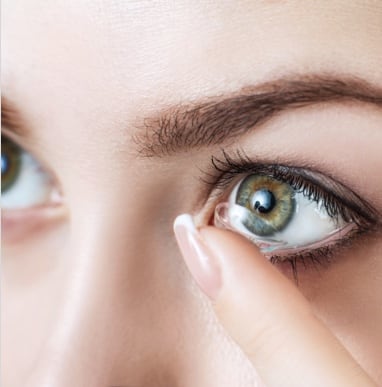Known all too well to allergy sufferers is the onset of watery, itchy eyes and vision discomfort from airborne irritants. However, eye allergies can also cause dry eye, especially seasonal allergies.
Dry eye can also result from other factors besides allergies. An eye exam can help determine the root cause of dry eyes for a custom treatment plan based on your needs for comfortable vision during any season.
What Is Dry Eye?
Dry eye is a chronic condition in which the eyes can’t maintain adequate tears or produce quality tears to keep the eye’s surface moist and comfortable. It can result in various symptoms, from stinging or burning sensations to sensitivity to light and a feeling of having something in the eye.
Several causes of dry eye include the following:
- Medication: A side effect of some medicines is dry eyes.
- Health problems: Diabetes, thyroid problems, and autoimmune disorders can cause dry eye.
- Laser eye surgery: Some types of laser surgery may cause your eyes to produce fewer tears.
- Environmental factors: Windy, smoky, or dry environments cause your tears to dry up faster and lead to dry eyes.
- Eye strain: Looking at screens for long periods can lead to dry eyes.
Allergies can also lead to inflammation and cause changes in tear production. Proper diagnosis and management of dry eye are essential for maintaining good eye health and preventing further discomfort.
What Are Eye Allergies?
Eye allergies or allergic conjunctivitis are an immune response to allergens that come into contact with the eyes. Common allergens include pollen, dust mites, pet dander, cigarette smoke, and mold.
When these irritants enter the eye, the body’s immune system releases chemicals that cause allergy symptoms. Common symptoms of eye allergies include:
- Itching
- Redness
- Excess tear production
- Burning
Allergies & Dry Eye
Dry eye syndrome is more than just the fleeting dryness that comes from a gust of wind or a few hours at the computer. It’s a chronic condition where the eye produces insufficient and poor-quality tears to coat the eye’s surface.
It’s intriguing to note that eye allergies can cause dry eye and worsen dry eye symptoms. When the eyes come in contact with allergens, the body’s immune system goes into defense mode, releasing a chemical called histamine, which can lead to swelling, itching, redness, and excess mucus production.
Inflammation caused by hyper-reactive immune responses can alter the composition of the tear film and the glands responsible for tear production, eventually leading to dry eye symptoms that persist during spring when allergens are at their peak and even outside of allergy season, such as in winter when there is low humidity.
Distinguishing Dry Eyes Caused by Allergies
Determining the cause of your dry eye on your own is nearly impossible. Your eye doctor can accurately diagnose dry eye with an eye exam, dry eye evaluation, and a look at your complete eye and medical history.
Tests your eye doctor may conduct to confirm the root cause of dry eye can include:
- Assessment of the health of your tear film.
- Measure how fast your tears evaporate.
- Take high-resolution images of your eyes and meibomian glands that secrete the oil in tears.
Management Strategies for Allergy-Induced Dry Eye
Knowing that allergens may be an instigator of dry eye, your eye doctor can recommend strategies and treatments for managing the discomfort. Here are some tips to help manage dry eye when allergies are the cause:
- Avoid rubbing your eyes: Even though the reflex to rub is almost uncontrollable, mechanical trauma can significantly exacerbate dry eye symptoms in the long term.
- Use artificial tears: Over-the-counter artificial tears can help relieve the dryness and provide a temporary soothing effect. Look for those that are preservative-free to minimize potential irritants.
- Use air purifiers: Limit exposure to allergens to help reduce eye symptoms and the need to rub your eyes.
- Limit exposure to environmental factors: Both air conditioning and wind can increase the evaporation of your tears, leading to more intense dry eye symptoms. If you are outside, wear protective eyewear.
- Use decongestant eye drops and antihistamines: Oral antihistamines can dry your eyes and worsen symptoms. Speak to your eye doctor before taking these.
Dry Eye & Eye Allergy Symptom Relief
The more you understand the interplay between allergies and eye health, the better equipped you can be to protect your eyes and vision. With targeted treatment for the underlying causes of dry eye, your eye doctor can offer long-term dry eye relief.
Spring or allergy season might not be a walk in the park, but armed with knowledge and a proactive approach to eye care, you can reduce the effects and discomfort on your eyes. Book an appointment with Vision Care Center for all your dry eye and eye allergy concerns.












